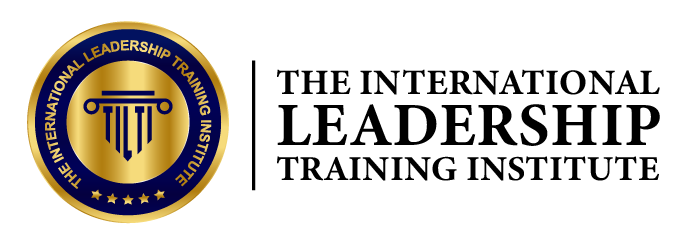Get the quality teaching, practical experience, support & encouragement you need to achieve Your goals and make a world of difference to your students’ lives.
Download PGCE Brochure
Download HereDownload Montessori/Early Childhood Education Brochure
Download HereEARLY CHILDHOOD EDUCATION/Montessori
A certificate in EARLY CHILDHOOD EDUCATION/Montessori Teaching prepares you for roles like Montessori Directress, preschool teacher, elementary school teacher, and childcare center facilitator. During an EARLY CHILDHOOD EDUCATION/Montessori teaching certificate, learners study Maria Montessori philosophy of child development, teaching methods, and curriculum design. The certificate also incorporates hands-on training and leadership skills, preparing educators for opportunities as lead teachers or preschool directresses.
MISSION STATEMENT
- Provide all of the theoretical and practical tools for the implementation of Montessori/EARLY CHILDHOOD EDUCATION.
- Know how to experience educational practice, placing the child at the center of learning and respecting their individual physical, intellectual and emotional needs.
- Provide an area of reflection on educational practice based on scientific evidence.
- Experience educational practice through day-to-day harmony and satisfaction.
LEARNING OUTCOMES
- Master the theoretical basis of Montessori/EARLY CHILDHOOD EDUCATION and its objectives.
- Achieve an overview of child development focus on physical, psycho-emotional and educational aspects.
- Deeply understand the characteristics and functioning of the ideal prepared environment, which promotes children’s learning as an active experience following their personal rhythms.
- Master the implementation strategies of the Montessori method: know how to design a Montessori environment at home, school or any alternative prepared environment.
- Know how to evaluate each stage of development by offering specific activities that accompany every aspect of diversity and individual originality.
- Understand the theoretical background, logical sequence and relationship between the activities in all areas: Practical Life, Sensorial Material, Visual Art and Music, Language, Movement and Cultural Areas (artistic and musical expression, history, geography and biology.
- Learn complementary educational theories and practices, placing them in the context of Montessori Education.
- Accept the importance of emotional education and master the techniques necessary to promote it in a Montessori environment.
- Assume the importance of ensuring stable and significant emotional relationships between adult and child, caring moments of individual attention.
- Know to build support, cooperation and trusting relationships between the family and the professional community.
- Understand how constant external and internal observation is the basis of Montessori/EARLY CHILDHOOD EDUCATION and know how to use this ability to recognize the children’s needs.
- Know the brain’s learning potentialities and the neuro scientific bases that validate Montessori/EARLY CHILDHOOD EDUCATION.
WHAT SHOULD YOU EXPECT?
Montessori/EARLY CHILDHOOD EDUCATION Practice
- All the information and the training needed to make a healthy Montessori classroom.
- All the teaching and practical training necessary to create a Montessori space and use it with children ages from 3 to 6.
- Innumerable practical activities in the areas of Practical Life, Sensorial Material, Visual Art and Music, Language, Movement and Cultural Areas (artistic and musical expression, history, geography and biology) and its structure, planning and preparedness techniques.
- All the practical training will be done with continuous pedagogical support and follow-up.
Montessori Theory Vs. Other Educational Theories
- The historical context of the work of Dr Maria Montessori and temporal and geographical evolution of the method.
- The Montessori method developed by Dr Montessori with all its theoretical elements.
- The adult-child relationship: the new role of the adult, the importance of observation and cultivating relationships.
- The Prepared Environment as an educational tool, its adaptation and management.
- All scientific evidence supporting Montessori theory, from psychology to neuroscience.
- Practical Life: Activities about taking care of themselves and the environment. Courtesy, grace and movement control make this working area the cornerstone of the future learning.
- Language: from oral language to the grammatical conscience, going through the development of reading and writing skills.
- Maths: all the materials and activities from the concept of number and quantity, going through the decimal system to memorizing the multiplication table, until they arrive at the level of abstraction.
- Visual arts: encourage the child from a Montessori perspective which leads to the discovery of art.
- Music: musical materials such as Montessori Bells and material for the composition of music.
- History, Geography and Biology: scientific experiments, sensory materials and other activities to discover these cultural areas.
- Frobel’s theory of Education along with his theory of play.
- Jean Piaget’s theory of cognitive development.
- Effects of Traditional ways of teaching young children.
All the elements about the prepared environment and space management will be taught. Each student will use a set of specific Montessori material to do the Montessori Practice.
HOW TO APPLY
Apply for your PGCE/PGCert/EARLY CHILDHOOD EDUCATION (Montessori) through www.tiltipk.com or Applications or CVs sent directly to TILTI at contact@tiltipk.com
WHEN TO APPLY
Applications for PGCE starts in every 5 months. We recommend that you submit your application as soon as possible.
Application for PGCert Starts in every 2 months.
Applications for EARLY CHILDHOOD EDUCATION/Montessori starts in every 3 months.
INTERVIEW
Your application will be assessed by our expert team and if successful, you will be invited to an individual interview.
WHAT TO EXPECT
You will have a personal or online interview with one of our tutors.
ENTRY REQUIREMENTS
EARLY CHILDHOOD EDUCATION
• A Bachelor’s degree
• Two A-level qualifications
• IGCSE English Language, Mathematics and Science, plus at least three other compulsory subjects or SSC/HSSC months






